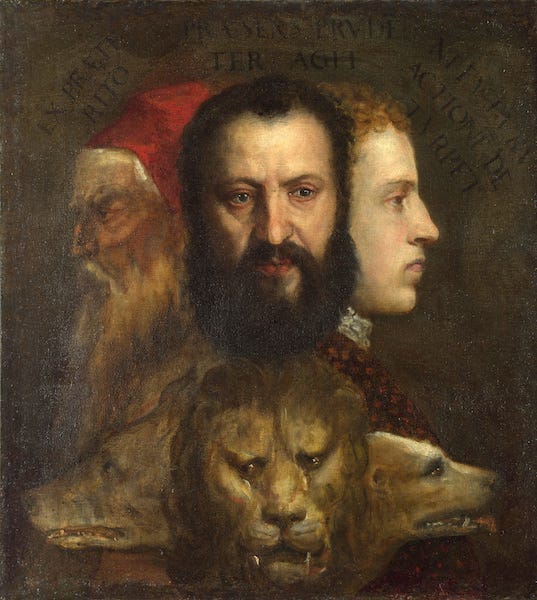Understanding an Age of Transition
All times are changing times. Society knows no state of constancy, no extended periods of equilibrium. Nevertheless, it is also true that history has its respective epochs, each with a character and flavour of its own. Over the past five years it has become readily apparent to many observers that we are living in an important period of significant change. The ostensible ‘equilibrium’ of the post-Second World War era has come to an end. It is dead but not yet buried. We are in a state of flux. Yet we do not know what we are moving towards. Reality has a habit of confounding most predictions.
The future may be unknown but we can at least try to be somewhat prepared by doing all we can to understand what is happening now. We have enough difficulties trying to understand the present. We float on a sea of information, like no other time in history before us, yet at such a crucial time the terms of intellectual debate seem narrower than ever. I am not going to chronicle the constriction of academic freedom or free speech or the rise of ‘cancel culture’, all of which have been detailed elsewhere. These are all fundamentally important concerns. What is often not considered nearly enough is the fact that even without such destructive trends, the room for intellectual manoeuvre has been remarkably limited in modern times. There are perhaps many reasons for this, not least obsessive hyper-specialism, but it stands to reason that if we cannot broaden our own terms of understanding we will not be able to adequately navigate the challenges we face now as well as the unknown challenges that lie ahead.
We may well be battered by information on a daily basis from all sides, but how accurate is it? How can we be certain much of it isn’t misleading or just plain wrong? This is especially pertinent when we consider how ‘specialised’ knowledge and scholarship has become. We are much less able to converse across disciplines and subjects than many intellectuals of the past were because we have become so obsessed with the tiny details. But how can tiny details make sense without a sense of the general picture? The metaphor of missing the woods for the trees is apt. It is arguable, however, that we have become so preoccupied with our own respective square inch of bark that we have forgotten what the tree even is. How then can we speak of the wood? This raises numerous problems when we try to understand things outside our own respective areas of expertise.
Michael Crichton once described an effect known as ‘Gell-Mann Amnesia’. In his words:
Briefly stated, the Gell-Mann Amnesia effect is as follows. You open the newspaper to an article on some subject you know well. In Murray's case, physics. In mine, show business. You read the article and see the journalist has absolutely no understanding of either the facts or the issues. Often, the article is so wrong it actually presents the story backward—reversing cause and effect. I call these the ‘wet streets cause rain’ stories. Paper’s full of them.
In any case, you read with exasperation or amusement the multiple errors in a story, and then turn the page to national or international affairs, and read as if the rest of the newspaper was somehow more accurate about Palestine than the baloney you just read. You turn the page, and forget what you know.
The reason we study history is not just that it might be interesting for its own sake (it is). But it is also so we might try to better understand the world we are living in now. After all, how can you understand the world if you don’t know how it got to be this way? I am writing here to work towards that end, focussing primarily on the nexus between history, politics and statecraft from an historical as well as present and future-oriented angle. The ripples of history are truly felt across the centuries. As the Victorian historian Edward Augustus Freeman proclaimed, ‘History is past politics, politics is present history.’ As such it will focus on those historical matters of great political importance which shaped the world we live in today and how we live in it. This will include individual figures and places, as well as transformative events and processes. Special attention will be given to the subject of modern monarchy, from an international perspective, since that is currently my primary research interest. Despite its prominence within the news, especially in countries like the United Kingdom, monarchy as both a concept and a political institution is little-understood and often paid very little serious attention by academics. The result is often like a game of Chinese Whispers, where semi-accurate information is spread from commentator to commentator until the whole picture is distorted and inaccurate. On the other hand, there is another danger of a straightforward ‘easy’ resort to truisms and banalities, which not only hinder our ability to understand the realities of monarchy in the modern world, but restrict our scope in trying to imagine or predict its future. I will try to explore different models of monarchy, both present and past, and consider how the institution might evolve in relation to democracy in this era of flux and beyond. I am not particularly interested in covering the day to day machinations of the political machine or party politics, where there is a tendency to generate far more heat than light. Rather the view will be long-term and the scope wide.
It is my aim to write every week. Some pieces will be shorter, others will be essay-length. Please consider subscribing for free emails. In due course there will be an option to pay a small subscription for extra content. In the spirit of Teucer of Telamon, ‘Tomorrow, we shall set out upon the vast ocean.’
Allegory of Prudence, by Titian (c.1488/90-1576)

